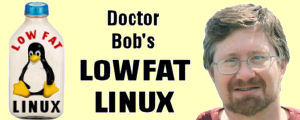LINUX CLASSES - INTRODUCTION
Can Linux Replace Windows?
Until recently, running Unix meant investing in a powerful workstation that cost megabucks. Linux changes all that, because it's a complete version of the Unix operating system (software that controls the basic functions of the personal computer) that
runs on ordinary personal computers. The added fact that it's freely available and "open source" makes it all the more attractive.
Linux is perfect for people who want to operate their own low-cost Internet servers, and it's robust enough to satisfy the needs of many Internet service providers. Linux is a multiuser and multitasking environment, and it can access huge amounts of me
mory (gigabytes) and huge amounts of disk storage space (terabytes). Linux offers virtually everything that Windows has been promising for years and may not deliver in a truly stable form for some time to come.
Don't make the mistake of assuming that Linux is some kind of watered-down or underpowered Unix for
the masses. Linux is Unix. POSIX certification (compliance with the industry standards for Unix) makes it
official that Linux can do everything that a Unix system is supposed to do. The only difference is that Linux
works on a personal computer, whereas other versions of Unix run on larger workstations or mainframes.
Linux is also being taken very seriously by the computer industry, with new Linux-compatible versions of
popular software packages being announced every month. The Apache Web server software running on
Linux platforms powers about half of all Web sites today. Even more telling, Microsoft considers Linux a
major threat to its Windows empire.
What Is Linux?
In the early 90s, a geek named Linus Torvalds at the University of Helsinki in Finland thought it would be
fun to write a Unix kernel from scratch. He called it Linux, and it was cool but pretty much useless without
all the utility programs needed to make it a complete operating system. At the same time, Richard Stallman
and his pals at the Free Software Foundation were writing a bunch of freeware Unix utilities collectively
known as the GNU Project. It was cool but pretty much useless without a kernel to make it a complete
operating system.
News of Linux spread quickly over the Internet, and many other Unix programmers joined the effort to
enhance it. What we now know as Linux is a combination of Torvald's Linux kernel, the GNU Project
software, and some other nifty software bit and pieces developed by programmers from all around the
world.
Today Linux is a complete and reliable implementation of the Unix operating system, with the following
notable features:
- 32-bit or 64-bit operation (it uses all the speed and power of your CPU)
- Virtual memory (it can use all of your system's RAM)
- Full support for X Windows (Unix's standard graphical user interface)
- TCP/IP networking support (allowing connection to the Internet)
- GNU software support (including a huge amount of free Unix software from the GNU Project)
Note: GNU is one of those recursive acronyms that computer scientists love; it stands for GNU's Not Unix.
The GNU Project is an effort sponsored by the Free Software Foundation to provide freely
available Unix software. See http://www.gnu.org for related information.
Linux was written totally from scratch
without using any of the original AT&T UNIX code. (Throughout this site, UNIX refers to the original
trademarked UNIX project invented by AT&T. The term Unix is used here as a generic term for other
variants of the operating system.)
Because of that (and because the author is a nice guy), Linux is free. You can obtain the source code, modify, sell or give away the software so long as you provide full source code and don't
impose any restrictions on what others do with it.
Previous Lesson: Who is Doctor Bob?
Next Lesson: History of Unix
[ RETURN TO INDEX ]
Comments - most recent first
(Please feel free to answer questions posted by others!)
Patrick Trueman ( 10 Jul 2014, 15:38)
I just did a poo
Patrick Trueman ( 10 Jul 2014, 15:37)
I just did a poo!
Cat Tilley ( 25 Feb 2013, 05:10)
Great info here in understandable terms!
I've been a Linux user ever since trying out Ubuntu through Windows XP via
Wubi. Torched my XP install, that showed me the power of the OS. Initially
was pissed, but got to trying different Linux OS's & have settled on Mint
(now using 13 LTS).
While I do use Windows 8 for some things, when I want control & security,
Mint 13 is my "go to" OS. I also have Mint on computers that cannot run a
modern Windows OS.
Who says the best things in life aren't free? Many Thanks to Dr Bob for
providing this wonderful site.
Cat
tncwvp ( 12 Feb 2013, 06:34)
xnfxax
<a href="http://www.bigtimeconservative.com/entry.php?16433-Forex-Broker-Comparison-abounding-love-that-whenever-I-was-absent-she-ate-not-and-she">forexbroker.info</a> ( 05 Sep 2012, 17:50)
And charm the air with their melodious song. 3000 2001 November habit of
carrying with him. Owen was quite uninjured and has, since his
Gabriel A. Cánepa ( 03 Aug 2012, 00:17)
@Brankiln Ventersnatch, here's a great book to start off with Linux and its
command line interface: linuxcommand.org/tlcl.php. It is free to download.
But, as Dr. Bob has already pointed out, this site is already a great
tutorial on Linux. Download the book in case you want it in one file and
need to access offline.
Gabriel A. Cánepa ( 03 Aug 2012, 00:13)
@praveen, in terms of users, both Unix, Linux (which is based on Unix) and
Windows are multiuser operating systems. Google "multiuser operating
systems" if you need further clarifications.
Gabriel A. Cánepa ( 03 Aug 2012, 00:11)
@mkat: for info on the GNU Project, check their official web site: gnu.org
"Unix utilities" means that the folks at the GNU Project were developing
applications that were Unix-compatible, or better said, based on Unix's
native tools.
mkat ( 14 Apr 2012, 21:30)
What do you mean by: "Unix utilities ... GNU Project. ..pretty much useless
without a kernel to make it a complete operating system." Why couldn't the
GNU utilities be used on existing UNIX computers?
praveen ( 31 Mar 2012, 22:06)
Sir,
could you please differentiate Unix,Linux and Windows interms of users.
Before I know that open source is the major difference, other than those
things is there any thing?
Waiting for your reply?
Brankiln Ventersnatch ( 28 Feb 2012, 17:45)
I would please like to know to how to get linux tutoriel on computer in
form like digital.
faith ejechi ( 24 Feb 2012, 16:31)
this is great
Abel ( 23 Nov 2011, 11:49)
Great info thanks.
Ps.Would not it be good to upgrade to a new CMS? so you can update content
more conveniently, is only a suggestion xD, I can help if you want, because
I love Linux and the pages that talk about Linux
alemtsehay ( 03 Nov 2011, 04:59)
and i want full Linux tutorial document.
alemtsehay ( 03 Nov 2011, 04:52)
hi Bob! now i want to ask you where did i get the out put of the Linux
scrip?
mac ( 12 Sep 2011, 22:30)
Thanks. Your hard work is appreciated.
Thos ( 08 Aug 2011, 23:21)
Sorry the previous message was intended for the "History of Unix" section.
Thos ( 08 Aug 2011, 23:15)
I think it would be nice to mention Ted Dolotta's work at Bell Labs on PWB
Unix. I ran PWB on a pdp-11/70 in the late 70s and through the 80s.
PWB was a rework of the Bell Labs research group's Unix to make a
production quality system that could be used as a work environment for the
staff at Bell Labs.
This system was reliable enough that it would typically run without being
rebooted from one scheduled hardware maintenance session to the next (about
six weeks as I recall) as long as we had no power failures. Actually I did
have to reboot it after the Loma Prieta earthquake.
This was at a time when the BSD systems at Berkeley were reportedly
averaging around one recovery reboot per day.
Hridya ( 10 Feb 2011, 08:24)
I get an idea about linux in brief through this reference
Michelle ( 30 Jan 2011, 16:04)
Matt -
U R Hilarious!
Venunye Kluvia ( 26 Jan 2011, 05:03)
can i get the hard copy of linux tutorial?
Thanga prakash ( 24 Jan 2011, 05:21)
thankyou,it helped me in my assianment
Attulinda ( 08 Jan 2011, 05:14)
thanks so much,it helped me in my assignment.
lekan ( 27 Jul 2010, 17:34)
thank you 4 a job well done, pls as a newbie I would need linux
installation guide.
Browlin ( 16 Jun 2010, 06:02)
Hi, ITs really good for those who want to learn Linux in the beginning
Bob Rankin ( 18 Mar 2010, 20:51)
I'm pretty sure the web is digital.
Daniel ( 18 Mar 2010, 01:53)
How can i get digital form of Linux tutorial?
i need it, because im a newbie for learn UNIX :]
bebobeck ( 17 Mar 2010, 00:47)
LOL !!!
Matt ( 18 Feb 2010, 18:30)
Re obtaining a hard copy:
I was able to obtain a selenium-stabilised styrene acrylate copolymer
version encoded onto a multi-threaded cellulose matrix.
I did this by hitting the "print" button.
Bob Rankin ( 02 Feb 2010, 05:25)
The hardcopy book from which this website was derived is out of print. I
only have it in this online digital form, sorry.
Shiva ( 01 Feb 2010, 23:30)
Can i get the hard copy of this Linux tutorial ?
 I welcome your comments. However... I am puzzled by many people
who say "Please send me the Linux tutorial." This website *is* your Linux Tutorial! Read everything here, learn
all you can, ask questions if you like. But don't ask me to send what you already have. :-)
I welcome your comments. However... I am puzzled by many people
who say "Please send me the Linux tutorial." This website *is* your Linux Tutorial! Read everything here, learn
all you can, ask questions if you like. But don't ask me to send what you already have. :-)
NO SPAM! If you post garbage, it will be deleted, and you will be banned.
|
Copyright ©
by Bob Rankin
- Privacy Policy
All rights reserved - Redistribution is allowed only with permission.


 I welcome your comments. However... I am puzzled by many people
who say "Please send me the Linux tutorial." This website *is* your Linux Tutorial! Read everything here, learn
all you can, ask questions if you like. But don't ask me to send what you already have. :-)
I welcome your comments. However... I am puzzled by many people
who say "Please send me the Linux tutorial." This website *is* your Linux Tutorial! Read everything here, learn
all you can, ask questions if you like. But don't ask me to send what you already have. :-)